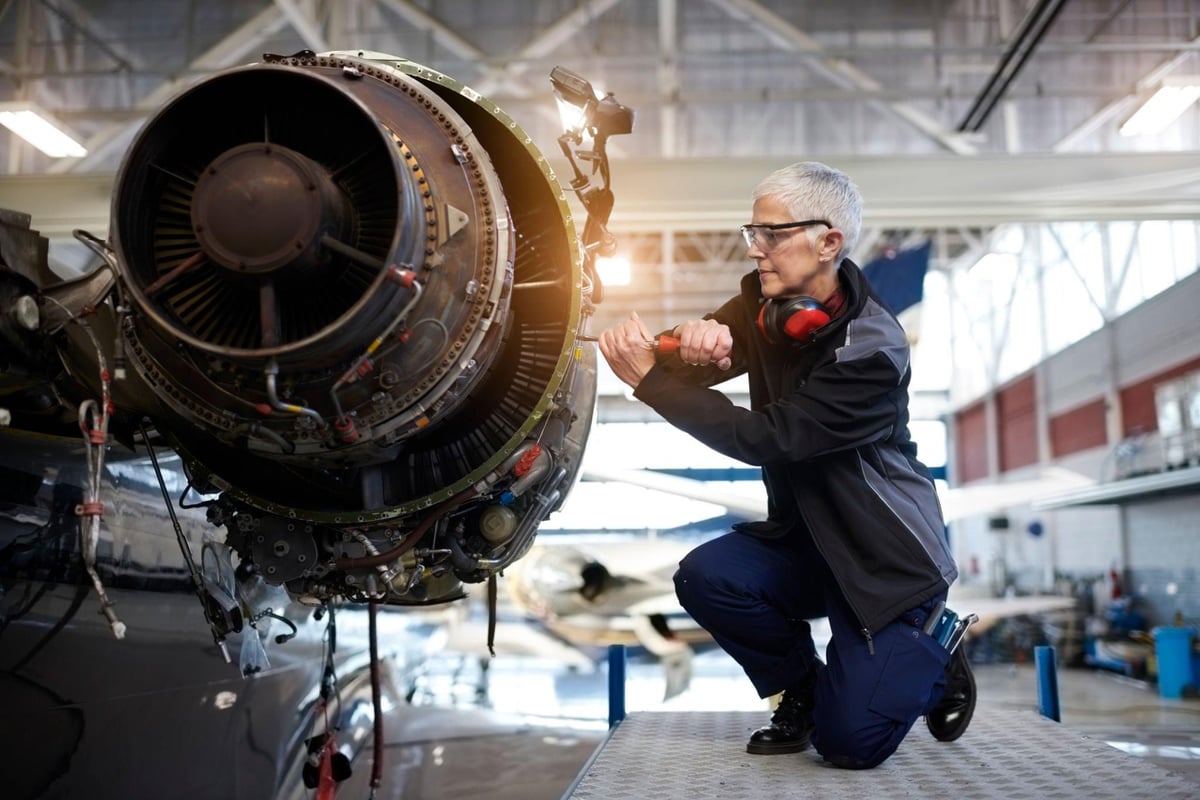How Long Does It Take to Become an Aviation Mechanic?

Becoming an aviation mechanic can be an exciting and rewarding career choice for those with a passion for aviation and a knack for problem-solving. However, before embarking on this career path, it's important to understand the time commitment required to become certified. In this blog post, we will explore the process of becoming an aviation mechanic, including the training requirements and the time it takes to complete the necessary certification.
Aviation Mechanic Training Requirements
To become a certified aviation mechanic, individuals must fulfill certain training requirements set forth by the FAA. These requirements include:
- Completing an FAA-approved aviation maintenance technician program, which typically includes both classroom instruction and hands-on training.
- Accumulating a specified number of hours of practical experience working on aircraft under the supervision of a certified mechanic.
- Passing the required FAA exams, which cover various topics such as aircraft systems, maintenance procedures, and aviation regulations.
It's important to note that the specific requirements may vary slightly depending on the type of certification sought (airframe, powerplant, or both). However, all aviation mechanics must meet the minimum training requirements set by the FAA to become certified.
How to Get a Job After Classes
After completing the necessary certification and training, aspiring aviation mechanics can begin the process of finding employment in the field. Here are some steps to take to increase your chances of securing a job:
- Build a strong resume highlighting your education, training, and any relevant work experience or internships.
- Network with industry professionals by attending aviation trade shows, joining professional organizations, and connecting with individuals on LinkedIn.
- Consider applying for apprenticeships or entry-level positions to gain hands-on experience and further develop your skills.
- Stay updated on industry trends and advancements by participating in continuing education programs and attending workshops or seminars.
- Prepare for job interviews by researching potential employers, practicing common interview questions, and showcasing your passion for aviation and commitment to safety.
By taking these steps, aspiring aviation mechanics can position themselves for success in the job market and increase their chances of finding employment in this exciting field.
Final Thoughts:
Becoming an aviation mechanic is a journey that requires dedication, commitment, and a passion for aviation. While the process of becoming certified may take some time, the rewarding career opportunities that await make it well worth the effort. By completing an FAA-approved training program, gaining practical experience, and passing the required exams, individuals can embark on a fulfilling career as an aviation mechanic. So, if you have a love for aircraft and a desire to work in a hands-on, technical field, consider pursuing a career as an aviation mechanic.
With Dreambound, find comprehensive guides that make starting in this field easier, each suited to a specific state. If you're doing research for this vocation, our other guides may be able to help.
Thinking about all of the factors involved in making a career shift? Take a look at some of the guides we've written to help you in your journey.

Alyssa Jane is part of the customer success team at Dreambound. She works with students, training providers, and employers, helping them have a smooth customer journey. She is also an ESL tutor and Licensed Psychometrician. She is fond of traveling, photography, and discovering new restaurants.




